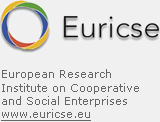The issue
The great theologian H. Von Balthasar, following the line of thinking of the German sociologist Max Weber, put forward a vision of the Church articulated into some basic “principles” or, as he said, “profiles”, related to the key figures of the primitive church. In his later works, he summarised his theory as a dialogue between an “institutional” and a “charismatic” profiles, where the one is complementary to the other, although in a dynamic way.
This inspiration for this conference is the idea that this theological model applies in the social and economic domain as well, because civil and economic life can be seen as a dialogue or a dynamic between the institutional and charismatic dimensions. Economic history, for instance, is not just the history of economic institutions – from the great banks to welfare state – but is also the history of the economic expressions of the charismatic movement, from the Benedictine abbeys to the Franciscan Montes Pietatis, the first banks available to the ordinary people in Europe, originating in the 16th century. In the modern era too, the economic and social life of Europe has been enriched by the many works of spiritual movements: hospitals, schools, other educational institutions, popular banks and rural. But in social and religious history, as in life, it is often much easier to trace the action of the institutional profile, and more difficult to see the charismatic dimension. The charismatic profile, or what we call “the charismatic economy”, is often left in the shadow, as if the institutional dimension were the only relevant dimension for understanding social and economic life.
We submit that there are two key elements that are typical of any charismatic expression in the economic domain.
a) Concrete needs: economic and civil expression of the charismatic principle, emerge as a response to the concrete needs of particular people. In the charismatic expression of society, life comes before theory, and the concrete experiences of concrete people is the text for theoretical reflection. The person is at the centre of the charismatic action, both in the “supply side” (those who possess a charism, a gift) and in the “demand side” (those who benefit from the charisms).
b) Innovation: It is typical of the charismatic profile that it opens new paths and new approaches in new fields of action. In the dialogue or the dynamic between the institutional and the charismatic profile, we might trace something analogous to the thesis of J.A. Schumpeter, who in his book The Theory of Economic Development distinguished between two kinds of entrepreneurs: the innovator and the imitator. The innovator is the one who by new ideas (i.e. innovations) moves economic development forward. Imitators, attracted by the new opportunity for profit, follow the innovators, and make the innovations part of the system and of society. We think that a similar dynamic might be at work in social life: the charismatic people, thanks to their vision, are those who open new frontiers on human needs and rights; institutions follow, making the social and human innovation universal erga omnes. This pattern might serve as an interpretive key of the dynamics which have lead to the recognition of human rights, environmental protection, and corporate social responsibility: people with a “charism” communicate with urgency their vision of social life and, later, institutions extend these innovations into social structures (i.e. the legislation on social accounting or labour rights). This is the logic of any innovation: particular people with gifts give a broader vision, and, in a virtuous civil society, over the course of time the entire society benefits from these innovations.
Follow the link to donwload the Call for papers in Pdf version.
Call for papers
We invite scholars from various disciplines (economics, history, social sciences, philosophy, theology …) to submit proposals, which discuss the dynamics underlying both theoretical, practical and historical aspects of the charismatic dynamics of economic and social life
Topics of interest
- theories on charisms in civil life: what is a charism? How does it work in society? How might one distinguish a charism from a talent? Are charisms given only to “special” people, are are they also present in ordinary people? Is a charism necessarily associated with religion, or, is it, as we submit, possible to imagine charisms at work within a secular perspective? Are there parallels between von Balthasar’s idea of the charismatic principle and Max Weber’s theory of charismatic power?
- historical perspectives of the role of charisms in economic and social history: how have the charisms of noted personalities (e.g., Benedict, Francis, Gandhi) changed economic and social history? What insights might be drawn from “civil charisms” such as the cooperative movement, non-profit organizations, social economy, values-based organizations, etc.?
- empirical cases of charisms in economic, civil and social life, both historical and current.
Scientific Committee
- Helen Alford (University of St. Thomas – Rome)
- Leonardo Becchetti (University of Tor Vergata, Rome)
- Luigino Bruni (University of Milano – Bicocca)
- Bennie Callebaut (University of St. Thomas - Rome)
- Piero Coda (University of Sophia – Loppiano)
- Mauro Magatti (Catholic University – Milan)
- Pier Luigi Porta (Milano-Bicocca)
- Barbara Sena (University of St. Thomas – Rome)
- Alessandra Smerilli (University Auxilium – Rome)
- Amy Uelmen (Fordham University, New York)
- Stefano Zamagni (University of Bologna and Johns Hopkins University)
Keynote speaker
- Bruno Frey (University of Zurich)
Important dates
- Submission Deadline: Jan 30, 2010
- Notification of Acceptance before: Feb 28, 2010
- Paper Submission Deadline: Apr 15, 2010
Format and submission
Authors must submit electronically an extended abstract of approximately 800 words in pdf format to the e-mail address: [email protected] and l[email protected].








